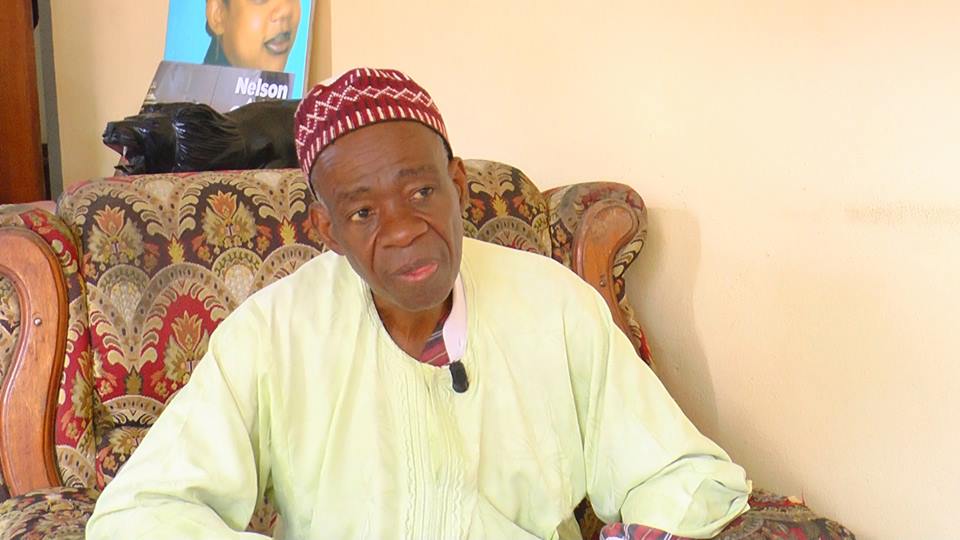Poor governance and weak educational system blamed for Cameroon’s soaring unemployment
Youths are often hailed as the caretakers of the future. What then is the future if the majority of young people are without jobs? Youth unemployment is not only a current problem, it highlights the future trajectory for a country, especially its economy. Such is the tale of Cameroon, where youth unemployment is an endemic […]

Youths are often hailed as the caretakers of the future. What then is the future if the majority of young people are without jobs? Youth unemployment is not only a current problem, it highlights the future trajectory for a country, especially its economy. Such is the tale of Cameroon, where youth unemployment is an endemic perennial problem.
As unemployment continues to threaten Cameroon’s struggling economy, some entrepreneurs have said most youths are ‘unemployable’ because they lack contemporary job skills. Speaking to Mimi Mefo Info recently, George Babila Nfon, CEO of Afoliba Group explained that Cameroon’s educational system does not work for the youths because it has failed to embed in them skills needed in the contemporary job market. The MBA holder said Cameroonians are very creative, but they have failed to excel because the educational policy does not encourage innovation as it emphasises theory and not skill. “Our educational system is not geared toward skill acquisition. The system is more informatory. We need to return to the drawing board as academicians… Industry practitioners need to be brought on board to frame an educational system that is geared towards skill acquisition,” George Babila opines. According to him, unemployment persists not because there are no jobs, but because the educated workforce is not employable due to their lack of contemporary job skills. “I’m very frank that our educational system is not working for us. We have a lot of graduates in accountancy, engineering who are unemployable…
There’s still much to be done to ensure our educational system is beneficial to our economy,” added George Babila. Madam Rita Asuma Elad, a teacher, however, attributes the responsibility for the unemployment scourge on bad governance which according to her has failed to emphasise rigour in the education milieu.“The level of unemployment in Cameroon is due to bad governance. We cannot associate it to lack of education because there are many educated Cameroonians,” says Rita Elad. She adds that “… the opportunities are not there… the private sector is very weak. It will be helpful if government can encourage private enterprise, since she cannot absorb everyone…”Dr Doreen Mbain a PhD graduate of history from the University of Buea, says Cameroon’s unemployment situation can be tackled if education is more practical. To her, “the educational system should be made practical. I think every course has practical methods which can be implemented. The educational system should be particular about skills acquisition and how practical they can be on the field.” The civil service as government approach According to the International Labour Organisation, (ILO), unemployment is measured by considering, out of the total working population, the percentage of people willing and able to work, but cannot find jobs. In 2019, the IMF placed the figure of youth unemployment at 3.30%. The government of Cameron has always stated that it is doing its best to fight unemployment, though figures by international agencies depict that there is more to be done. In 2019, former Prime Minister, Yang Philemon said the state in its fight against unemployment created some 437,653 new jobs. This he said, was “thanks to the many opportunities offered through various recruitments in the civil service.” Potential employment openings, including public common entrance exams are usually overwhelmed with thousands of these graduates who, despite working in the informal sector, are not satisfied with the menial wages.
During this August’s GCE Board temporal job offer, for example, over 6,000 youths applied, scrambling for the few available opportunities. In 2016, the national institute of statistics, (NIS), stated that just about 350,000 people (3.8%) were unemployed in Cameroon. Rather, more than 14% of the workforce is underemployed, that is, they work involuntarily in menial jobs for wages less than the minimum monthly wage of FCFA 36,270 ($65.5). This is visible as thousands of youths who graduate from state and private institutions, end up in the informal sector, acting as taxi driving, hawking on streets, or selling second-hand goods in local markets and neighbourhoods. UNESCO, in its 2019 employment index, said 71 million youths are unemployed globally, with some 10 million others joining the job market each year. Many more Cameroonians like their counterparts globally are bound to be just statistics if the government fails to take a more inclusive approach.

















